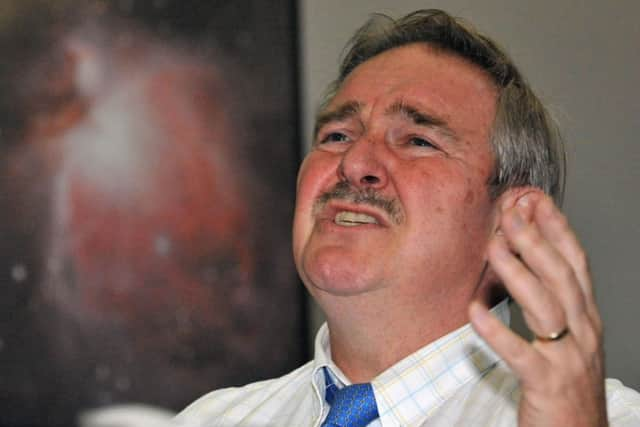David Nutt: Treat patients with ecstasy, cannabis


Controversial former UK drug tsar Professor David Nutt says a pioneering revamp of laws on illicit drugs could see Scotland leading a new neuroscientific enlightenment that will benefit society as a whole.
“Scotland has consistently led the world in science, particularly in the development of pharmaceuticals and in the philosophy of science and the brain – through Enlightenment-era thinkers like David Hume and John Stuart Mill, and now in the present day through endeavours to change drug and alcohol policy based on science rather than on simple political motives.
Advertisement
Hide AdAdvertisement
Hide Ad“My call for a neuroscience enlightenment resonates with this grand tradition of free thinking and could lead to much improved healthcare developments in Scotland using new treatments such as cannabis, psychedelics, MDMA and related compounds.”


Nutt was famously sacked from the UK government’s Advisory Council on the Misuse of Drugs by then-Home Secretary Alan Johnson after suggesting that horse-riding was statistically more dangerous than taking ecstasy.
Banning certain drugs is depriving patients and doctors of “extremely useful” therapies for chronic pain and illnesses including cancer, depression, post-traumatic stress disorder and irritable bowel syndrome, he says.
This is because difficulty in obtaining the drugs makes it almost impossible for scientists properly to investigate their potential, thwarting development of new treatments.
He suggests that some of the increasing number of “legal highs” appearing on the streets may also have potential therapeutic benefits, but warns that criminalising them will slam the door on further studies.
He said: “Let the doctors decide which drugs are harmful, not the politicians.”
But he argues that the Scottish Government has already taken the first steps towards this new era of enlightenment with “evidence-based policies” on alcohol and tobacco, citing the early introduction of a smoking ban, lowering the drink-drive limit and “the brave but rational move” towards a minimum unit price for alcohol as cases in point.
“Why shouldn’t the country build on what it has done with minimum pricing of alcohol and be rational across the board on drugs,” he said.
FOLLOW US
SCOTSMAN TABLET AND MOBILE APPS
Advertisement
Hide AdAdvertisement
Hide AdThis is just one of the topics coming under the microscope at this year’s Edinburgh International Science Festival. Nutt is one of the headliners in the Brainwaves strand, a new mini-festival of grey matter that will put subjects as diverse as mind-machine interfaces, the cultural history of the brain and the ethics of neurological experimentation on the agenda.
The academic, who is chair of the Independent Scientific Committee on Drugs and vice-president of the European Brain Council, has long argued that drugs should be classified according to actual evidence of the harm they cause.
He has published studies ranking alcohol as more harmful to society than both heroin and crack, but says that those drugs, along with crystal meth, are the most harmful drugs to individuals.
During a special one-off lecture, he will discuss Scotland’s policy successes and suggest ways to improve responses to harmful drugs and encourage innovations in treatment.
Brainwaves is being run in partnership with the British Neuroscience Association, which is this year marking its 50th anniversary by holding its annual conference in Scotland for the first time.
Amanda Tyndall, deputy director of the festival, said: “It is great for us because we get to capitalise on that critical mass of expertise that is going to be gathering in the city.
“And since 2015 is the International Year of Light, I think we can use that as a way to champion the shining of the light of knowledge into the darkness of confusion.”
SEE ALSO